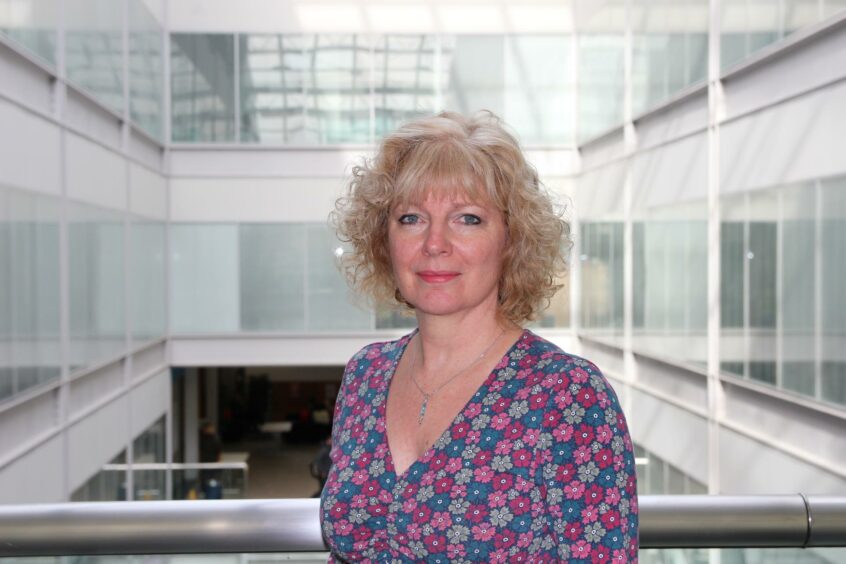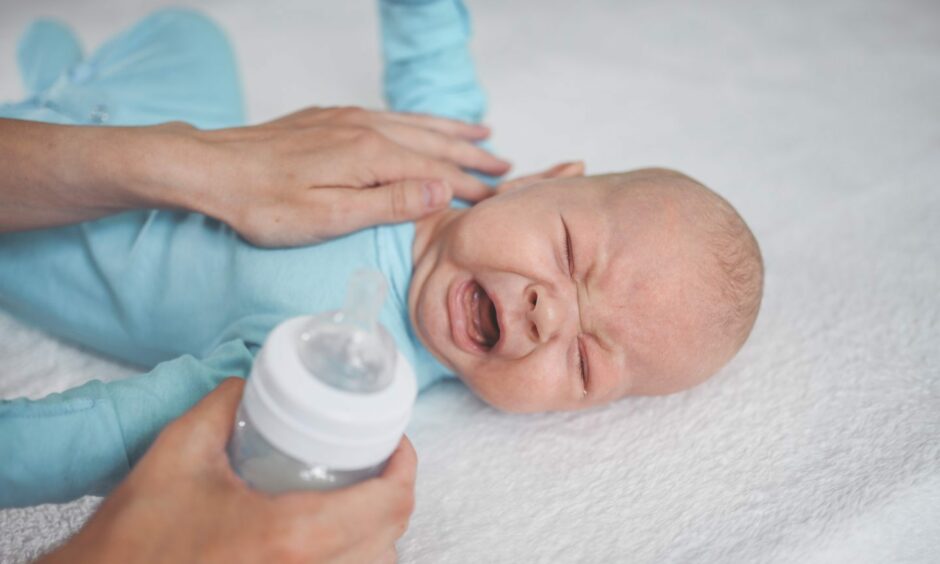Young mums in the north-east are experiencing increasing levels of poverty and food insecurity since the pandemic, according to new research.
The Robert Gordon University study found rising food insecurity is making it harder for some women to breastfeed – and some families are struggling to afford formula.
The research, led by Public Health Professor Flora Douglas and a small team from the School of Nursing, Midwifery, and Paramedic Practice, also found that parents are carefully budgeting to “make ends meet”, with some even going without food.
Working in partnership with health professionals and a food pantry network in the north-east, the team carried out two interview studies between 2020 and 2022 to explore the experiences of parents from low-income households with babies and infants.
The first study involved 22 pregnant women and mothers with at least one child under five who shared their experiences.
The second involved interviews with 18 midwives, health visitors and family nurse partners who offered their expertise from the frontline.
Almost all participants were claiming Universal Credit and lived in areas of deprivation within Aberdeen City.
The research highlights “worrying” levels of poverty-driven food insecurity that have increased since the Covid pandemic.
Young mums ‘particularly vulnerable’
According to Prof Douglas, just over a fifth of children in Aberdeen and Aberdeenshire are living in poverty.
She said: “Our research reveals the difficulties many parents on low incomes experience, and the shame and embarrassment many are experiencing in admitting hardship. There’s a stigma in asking health professionals for help with many low-income parents being too scared that their children could be referred to social services and taken into care if they ask for help. Others feared that asking for help could exacerbate often-existing abusive partnership relationships.
“Our research also showed a lack of confidence amongst health professionals, about how best to speak to parents about their financial well-being with many aware that mothers often wanted to ‘hide’ their poverty from them.”
Prof Douglas said it is “alarming” that more people are living with debt and there needs to be a real urgency to take the problems of food insecurity.
Infant formulas increase by 15-23%
Researchers found it has become “normalised” for mothers to go without food and basics to support their children, while many are relying on charity or extended family for help.
“Food insecurity is hiding in plain sight”, Prof Douglas said. “Society is not paying enough attention to how bad the situation really is and how policies are tackling the problem.
“Another worrying trend is that rising food insecurity is making it harder for some women to breastfeed, and for some families to afford to formula feed. It may also be affecting the diets of pregnant women and young children; especially as healthy foods are generally more expensive than unhealthy foods.
“What’s more alarming is that between March 2021 and November 2022, the most widely available and purchased infant formulas increased in cost by 15-23% and the cheapest and only ‘own-brand’ infant formula (Aldi’s Mamia) increased by 33%. There are also no infant formulas affordable with the Health Start Allowance.”
Focus on prevention rather than behaviour change
Teams are now calling on the government to introduce “big ticket” interventions to turn the tide on child poverty and a shift in focus to prevention.
This includes policy actions that increase household incomes like the newly introduced Scottish Child Payment, as well as other actions to support parents and health professionals.
The research will be explored further in RGU’s latest Research Revealed series, with interviews from Prof Douglas, AberNecessities and international insight from Dr Lesley Franks from Acadia University in Canada.



Conversation